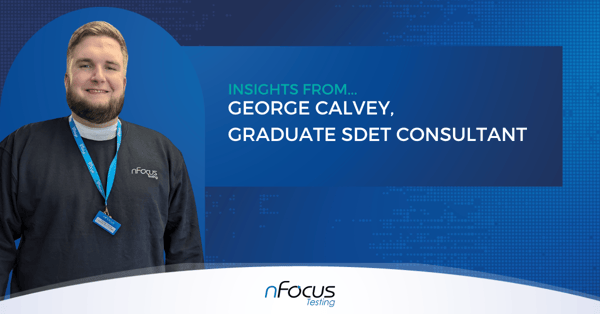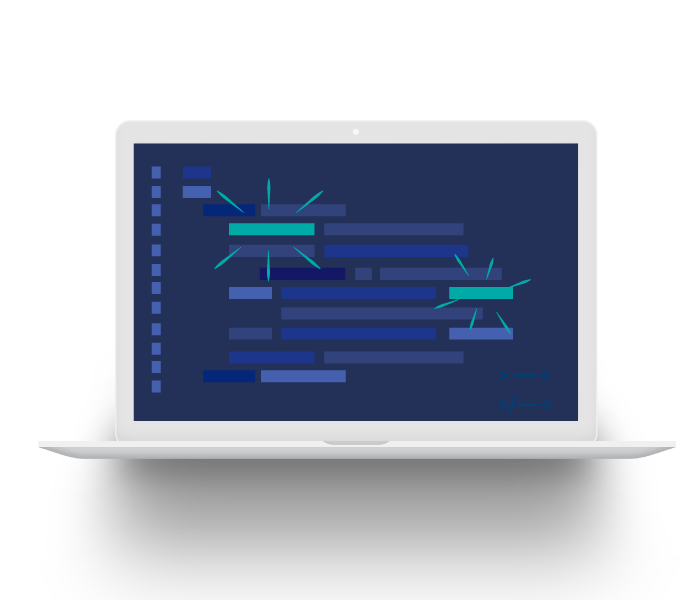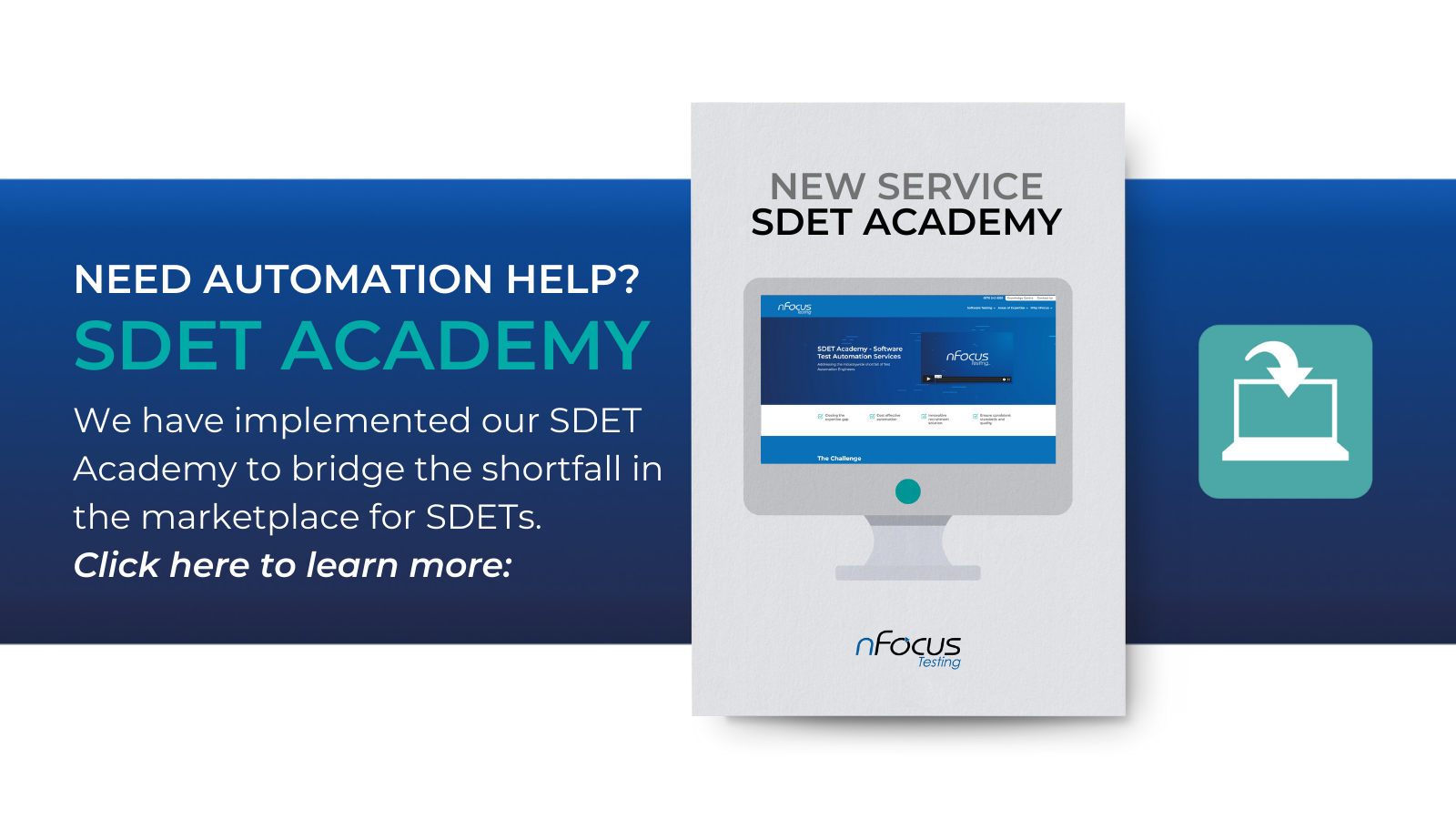Who am I?
Hello, my name is George. I’m a Junior SDET Consultant (Software Development Engineer in Test) who has recently celebrated my two-year work anniversary here at nFocus Testing. These past two years have easily been the best working years I have experienced. I say this because I have been extremely fortunate to work alongside amazing team members; colleagues who have grown into strong friendships and, I predict, lifelong support networks.

I have been given the opportunity to gain experience and develop my own knowledge and skill set in the world of testing. Lately, I've also had the privilege of supporting new Junior SDETs coming out of nFocus' Academy.
I wanted to write this blog to share my experience of how I got to this point because not everyone’s path to testing is linear, mine certainly didn’t feel that way. Given my background, I am evidence of nFocus’ inclusive reach and diverse workforce, and I hope my experience will help you decide if a career in testing could be for you.
Life Before nFocus
Throughout my life, I've had an interest in computers and technology, alongside my love for sports, particularly basketball. As a young teen, I attended a predominantly sports-based college and was fortunate enough to represent England. One condition of playing for England was that I attend a college or sixth form that played weekly. Additionally, I was working part-time to support myself.
Supporting my basketball career turned out to be a huge time commitment, and as a young teen, it was exhausting both mentally and physically. Due to my athletic talents, I was encouraged to pursue a Sports BTEC. However, looking back, I wish I had done my own research into coding and other aspects of computer studies. In fact, I wish I had chosen to study A Levels in Computer Science. (Hindsight is a wonderful thing!) Although at the time, my sole aspiration was to become a professional basketball player, I was always conscious that this might not be a possibility whether it be due to opportunities, my ability, or potential injuries. That's why at university, I opted to study Computer Games Programming.
Within my first year, I realised I was falling behind many of my peers in learning how to code. I sought support from my lecturers, but something still wasn’t working. I was making constant spelling mistakes, often finding myself confused and lost in large sections of code. Although I knew what I wanted to accomplish, I had no idea how to execute it. Recognising my struggles with learning to code did two things for me. Firstly, I discovered I was dyslexic. Secondly, I made the decision to change my course to Computer Games Modelling & Animation. This path suited me much better, and I successfully graduated with a 2:1.
However, I graduated in the midst of COVID-19, and the job market across all industries was fiercely competitive due to mass redundancies. Nevertheless, the gaming industry posed particularly daunting challenges. Individuals like me, holding a 2:1 degree with no experience beyond academia, found ourselves overlooked. I encountered a unique dilemma: my desired career path seemed increasingly improbable, yet there lay an unprecedented opportunity to carve out a career in any direction, a prospect that strangely excited me.
I should explain that by this point, I had shifted away from pursuing basketball due to the pandemic. I had come to the realisation that a professional basketball career would be short-lived and financially unsustainable. It was a tough decision, given that I had dedicated the past 10 years to pursuing this dream. However, after careful consideration of my options, I knew I wanted to explore a different path
The thing I wanted to do most when I focused on a gaming career was games testing, so I was somewhat familiar with quality assurance (QA) as a career choice. I used to search for phrases like 'Graduate', 'Testing', 'Trainee', 'Technical Testers', 'QA', and 'Training Provided.' I knew that I could come up with any search result, with roles based anywhere in the UK, but I was also open-minded and up for a challenge. I believe having an open mind to different approaches, alternative viewpoints, and methods only stands to benefit you. I believe recruiters using the same approach only stands to benefit businesses.
During COVID-19, I applied for over 250 jobs, and nFocus’ graduate program caught my attention. nFocus was one of the only companies that placed equal value on harnessing potential, a person’s key beliefs, personality traits, and interpersonal skills as it did on technical ability, which allowed me to shine in their recruitment process.
Given My Experience, What Was It Like Completing the SDET Academy?
After the selection day, my first official day at nFocus was held in Telford, where I met the other successful candidates. We were given an insight into the SDET Academy. The following day, we prepared for our first week in the training Academy which was learning SCRUM and how quality assurance principles are applied within it.
After learning about SCRUM, we started to learn everything we needed for our International Software Testing Qualifications Board Exam (ISTQB) Foundation in Testing. Following this, we moved onto the ISTQB Agile Tester. I liked both of these courses because they went beyond the theory and provided practical sessions to apply what we were learning.
Studying for the exam was positive, I liked how the testing processes, methodologies and thought processes behind the learning were logical. I had excellent tutoring and fantastic learning materials which helped hugely. Studying involved a workbook, a mixture of tutoring, workshops, and revision guides around each section. The exam itself I did from home, I was observed through a webcam and had a camera set up behind me too so the examiner could ensure there was no cheating. The exam had multiple choice questions, and I passed first time.
The next stage in the Academy was learning how to create robust test automation and we started with C#. With coding being something I struggled with in the past, this was quite intimidating initially. I felt more confident in my chances this time around, however, as I had fantastic support from the other Junior SDETs in my cohort and our Tutor.
Bouncing ideas of the other Junior SDETs helped us problem-solve using different perspectives. Furthermore, our Tutor was excellent; always available, answered any questions, didn’t rush, and tried to explain things in a way we’d understand.
We had daily tasks that we had to complete by the end of the week which helped utilise what we had learnt that day. This task-based learning was a real breakthrough for me. As I felt like I could understand in a way that worked for me. I could experiment and learn for myself. Our learning culminated in an end of Academy project where we were given two test cases and had to write a script to test an online clothes shop. Here I got to put the pieces together to showcase what I’d learnt and present it. There were a few late nights as I worked hard to deliver something I was proud of.
When I Join a Client’s Project, How do I Use My Skills & Experience to Make a Positive Impact?
After completing the Academy, I was eager to start working with a client and was put onto a project quickly alongside friend and colleague, Jordan.
We quickly realised the importance of self-development to keep our skills fresh and aligned with those on our project. Throughout the Academy, I had gained a deeper insight into how I learn; I have discovered what methods I respond to best. So now when faced with learning something new, I can face the challenge head on; and often enjoy the experience.
Having the ability and willingness to learn I believe is a critical skill, as within this industry change is inevitable, with new software and tools continuously being developed, new people, projects, and deadlines to meet. Being able to pick up new tools and understand their benefits and shortcomings will help you decide if you can utilise them to make your work more efficient.
The project we were on successfully completed after a three month period and we then moved onto another project within the same client. We joined a small team of two, where the priority of the first six months was to learn the systems and process, we were testing and creating the automated regression test pack; consisting of nine hundred tests. The goal was for Jordan and I to be moved over to the cloud environment to lead the regression testing.
Joining a new team felt a little daunting but once we travelled onsite and got to know the team, we felt much more at ease. We spent the next few months learning various parts of the test pack so that between us we could cover all sections. It’s here where we learnt the importance of learning from our failures; we learnt more from the five that failed than the one hundred that passed.
I began to develop a checklist of things I would go through to figure out why a test failed, once I had the reason, I could begin the process to fix it which was usually straightforward. As we spent more time running tests and fixing failures, we noticed an opportunity to test ourselves, as our Lead had over 10 years’ experience running these tests, they had unbeatable knowledge of the tests scripts and the system we were testing. However, they have always stated they are not the most technical and therefore the scripts have room for continual improvement.
We had the opportunity to clean the scripts and experiment to see if we could improve the tests by making them more efficient and robust thus requiring less maintenance. This learning opportunity was incredible, as we were and are given the ability to push ourselves to make the test better without the pressure of a deadline.
Around halfway through our first year, we moved temporarily to the browser agnostic team where they were running manual tests across several browsers. With an emphasis on consistency of appearance and performance across the different browsers. It was good to experience another side of testing and to experience the manual side of testing as it added more to my knowledge base.
This was quite a major context switch but we were pleased to be able to jump in and help the other team. This switch did mean we lost a little bit of momentum so, it was important we got it back as quickly as possible. We continued from where we left off and gradually built our knowledge, meaning we had little time to work on script improvement, but we’ll get the opportunity down the line.
The most important thing is to gain more experience with the tests and software, so I understand it. This comes with time and it takes consistent practice which is something I am not new to. I would spend countless hours practicing and honing my skill in basketball. I feel this is no different; the more I do and the more time I spend doing it the greater my understanding will be, which will help me in all aspects.
We are now part of the cloud team where we are given sole responsibility to maintain and run the regression testing in this environment. We still have frequent contact with our previous team and the Lead who provides us with assistance and guidance when needed. I find this invaluable, as our Lead has over 10 years of experience with the existing test pack, something that, despite our ambition and will, we simply cannot emulate in only one year. Being able to access this support and be encouraged to use it is crucial to our development.
We completed our first run of the regression pack in the cloud before Christmas. There were issues with this first run, as predicted, as in the history of the company we were the first people to run the existing tests in the cloud. Therefore, every teething issue that arose was a first and an unknown, so naturally it was a stressful time. I imagine more issues will arise going forward in subsequent releases.
However, during these moments I go back to a saying that was used a lot during my time playing basketball which was “control the controllable” which meant know the things that you can control, take ownership of these and don’t worry about things you can’t.
As we look to upcoming releases, I know we’ve done all that we can, from clearing our defect list to updating the scripts and datasheets we’re ready to go once we get the green light. Every release gives us more experience that we can take into the future and helps us grow in confidence in our knowledge and skill sets, but within ourselves as well.
Then, I can Look to The Future, Career Development Steps
Recently, I've been given an opportunity to support my fellow Junior SDETs to check-in on their wellbeing as they gain more experience. In these meetings, we discuss their experience with the clients, what challenges they face and what they have gained from it, along with how life is outside of work with an emphasis on good work-life balance. We have an extraordinary group of people who are extremely talented, and I relish talking to each of them, hearing about their careers and lives, with my main goal being to help them in any way I can on their journey.
In terms of my personal development, I'm learning new programming languages and applying the same good test automation practices to different tools. I'm currently spending my personal time looking at Playwright. This personal development will further expand my skills from the ground up and highlight areas of improvement.
Thank You
If you have made it this far, thank you, I hope I have given a unique insight into my journey as a Graduate with no testing experience to an SDET. Showing that with the right mind-set and support, you can gain the skills and confidence needed for the role. If you were on the fence about your early career, I hope this has helped you decide if testing is right for you.
A special mention to nFocus for all the support and opportunities throughout this process as well as the amazing cohort I was a part of. A big thank you to Aaron, Bhawana, Duleep, Elize, James, Lewis, and Jordan, as throughout the Academy and to this day you have always be there for me and we’ve been there for each other. I am immensely proud of us and can’t wait to see what the future holds.








.png)
